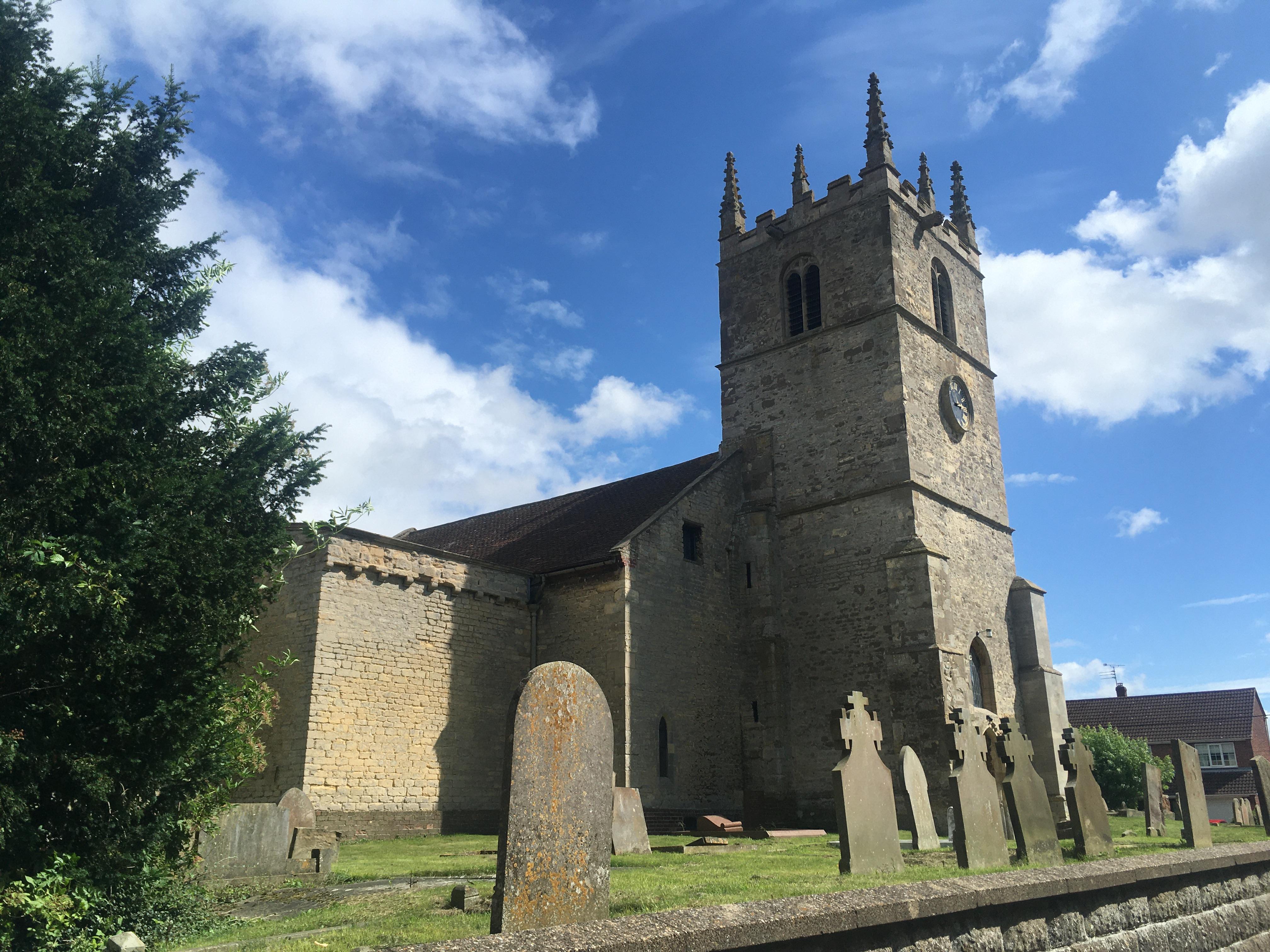St Edward
Sudbrooke, Lincolnshire
St Edward the Confessor is a Grade II Listed church built in 1860-2 by John Dobson of Newcastle as the result of a generous benefactor.

St Germain's church is set in the centre of the quiet village of Scothern, about six miles northeast of Lincoln.
Scothern, Lincolnshire
Our historic Grade II* listed church was first mentioned in the Domesday Book, in 1086, but has had many periods of rebuilding over the years. St Germain was a 5th century bishop from Auxerre in France; he died in 448AD. St Patrick (born 390 and died 461) appears to have been a pupil of this St Germain. Both saints have stained glass windows dedicated to them in the chancel.
Barlings Abbey owned the church land, and had the right to appoint a priest here from 1154 until 1536. In 1536, during the reformation, the Abbot of Barlings sent money and valuables to the vicar of Scothern for safekeeping, before being arrested for his part in the 'Lincolnshire Rising'. The Abbot was hung at Tyburn, and Barlings Abbey was dissolved in 1537. In 1776, during major rebuilding of the church, a hoard of silver medieval coins was found in a red morocco slipper hidden in a niche of the north aisle. Coincidentally, in 1494, during a regular inspection, the Canons of Barlings were admonished for wearing slippers!
A medieval manuscript (c1350) belonging to the church was recently rediscovered in the Archives of Lincolnshire, bound into the churchwardens accounts of 1585 to 1770.
Above the entrance porch is the Victorian bell ringing chamber (not accessible). There are six bells made by Taylors of Loughborough, which are normally rung before each service. Five were hung in 1887, to mark the Golden Jubilee of Queen Victoria; the sixth bell was added two years later. There is a medieval spiral stair case, which led from the church to the upper chamber, but it is now blocked off. The church clock was presented by Mrs Ellison, in 1861, in memory of her husband.
On entering the main body of the church, to the right is the font, from Richard Ellison, Lord of the Manor of Scothorne, who founded the local school in 1837. The sculptures on the font represent the four evangelists: the symbols were taken from the book of Revelations, and were used in medieval times, when very few people could read.
There are three double stained glass windows in the nave, all installed by Burlison and Grylls c1900, depicting: Mark and Luke; Mary and Martha (sisters of Lazarus); Matthew and John. Other featues include a medieval grave slab near the pulpit - the elaborate floral cross is reputed to be one of the finest of its kind; the organ to the north of the chancel was built by Wordsworth’s in 1894; the 19th century reredos houses a late 16th century Flemish panel painting “Adoration of the Magi”, after an engraving by Hendrick Golzius (1558 – 1617).
Parking spaces are normally available on the roadside, next to the church. There is a slight slope up to the west entrance door, in the base of the tower, and good access for all into the nave. There are fixed pews throughout the nave, but there is a small open space in the north transept.
Sudbrooke, Lincolnshire
St Edward the Confessor is a Grade II Listed church built in 1860-2 by John Dobson of Newcastle as the result of a generous benefactor.
Dunholme, Lincolnshire
St Chad's is mainly medieval in construction, there has been a church building on this site for at least 700 years.
Langworth, Lincolnshire
Previous to this church stood The Old Mission Church, an iron building formerly situated in Burton by Lincoln having 'recently been used as an infant school and purchased for £30 in 1897'.